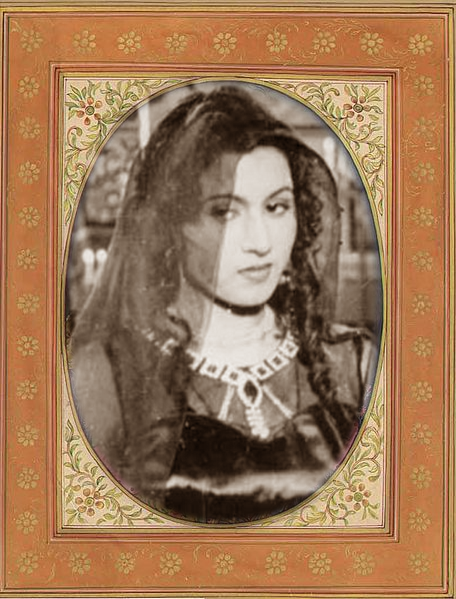Alissa Al-Osman
| Alissa Al-Osman |
| Full Name: Alissa al-Osman |
|
|

|
|
|
| Physical Description |
| Gender: Female |
| Species: Human |
| Race: Babkhi |
| Hair Color and Style: Black, long |
| Eye Color: Pale brown |
| Skin Color: Olive |
|
|
| Biographical Information |
| Father: Aurangzeb Khan |
| Mother: Turandokht Osmania |
| Date of Birth: 1589 AN |
| Place of Birth: Ardashirshahr, Elwynn |
| Date of Death: 1654 |
| Place of Death: Nordagaat |
| Current Residence(s): Nordagaat, Mirioth, Amity, and So-Sara |
| Nationality at Birth: Elwynnese |
| Current Allegiance(s): House of Osman House of Verion (formerly) ESB-Jörmungandr Group Royal Iron Company |
| Occupation: merchant, diplomat, courtier |
A participant in, survivor of, and finally victim to the dynastic and corporate politics of the Imperial Republic during the neofeudal era.
Marriage
Alissa was betrothed to Alix Verion in 1610 (Elw.AN) in an arranged marriage organised by Tokaray al-Osman in order to try and garner the support of the House of Verion in bringing an end to the Cimmerian Conflict and heal the rift caused by the actions of Jack Lewis. Although the Communist Revolution of 1612 rendered this piece of diplomatic manoeuvring irrelevant she remained formally wed to her husband whom she eventually met ten years afterwards, and their son Ludovic was born in 1624. A daughter, Regina Verion, followed in 1634.
After her husband died of complications arising from Temporal Haemorrhaging, a particularly nasty side-effect of the dangerous practice of moving between Elwynnese and Shirerithian chronologies in a reckless manner, Alissa returned to her ancestral home of Ardashirshahr in the year 1639.
Later Life
In 1640 Alissa was sent to join her step-brother Tokaray, and his two wives, the Simrani sisters, in Amity, where the ESB Group was seeking to establish its influence against encroachment by the Iron Company, which was, ironically, now led by her son. She grew to despise the two Simrani sisters, Miranda for her depravity and Isabella for her vaulting ambition.
Alissa would, for that reason, come to rely upon the support of the Iron Company's local agents in Erudition as the mutual antagonisms of the ruling family saw her drawn into the so-called Women's War (1651–1654) between the various relatives of Tokaray for control of the House of Osman and the dominion established over the isles of Jadid Khaz Modan. Alissa found herself in alliance with Azardokht al-Osman against the latter's overbearing aunt, Isabella Simrani-Kalirion who had previously harboured designs of marrying Azardokht off to her son Danyial Simrani-Kalirion.
Unfortunately her suspected role in the poisoning of Miranda marked her for retribution and made her an obstacle to the restoration of peace. With the prospect of an Imperial intervention looming Azardokht turned against her former protector and benefactor in return for her place at the negotiating table. Arrangements were made for Alissa's bodyguards and domestic staff to be withdrawn silently at a prearranged moment.
It was in late 1654 therefore that Alissa al-Osman, mother to Ludovic Verion, and a wily survivor of Imperial politics and intrigue, finally ran out of luck. She was hunted down in her villa compound on the outskirts of Nordagaat and discovered, after a long search, hiding under a pile of bedding in the servant's quarters.
Assaulted by furious young men she was stripped of her clothes and, naked and squealing, she was dragged out by her feet into the courtyard; this being her place of execution, whereupon the hired youths who had stormed the compound came to arguing amongst themselves over who would have the honour of doing her to death. Finally the oldest of the boys, a fifteen year old with filed teeth and a tattooed face, pushed Alissa to the floor before squatting down on her back and pitched up her neck with his hands while the other lads drew out the cord and began to wrap it about her neck. Before the cord could be pulled tight however Alissa, though she had been roughly handled and beaten half out of her senses, fiercely bit down on the thumb of her assailant's left hand, which by chance had come into reach of her mouth, so hard that the startled boy bellowed in agony and could not extricate his thumb from the wolf-like grip of her teeth until he'd unsheathed his knife and, with its haft, struck her savagely about the forehead near her right eye.
The execution was delayed while the youths delivered onto Alissa a furious beating for the defiance she had shown their leader. And they laboured with their kicks and punches for so long that Alissa leaved off struggling, her battered, bruised and bloodied body lying prone in the gravel courtyard under the gaze of a pitiless sun, and her inexperienced murderers assumed that she was dead. Believing their work to be done, the boys ran off to find the handler who had commissioned their gruesome work. They had however scarcely left when Alissa raised up her head and sought to crawl back towards the villa, leaving a trail of blood in the dirt and gravel. She was however immediately discovered by the domestics, specifically a pair of maids and her butler, who had returned to loot the villa of any cash, jewellery and valuables the attackers might have missed. Spotting their former mistress, they immediately ran out and called the executioners back. The strangling cord was applied for a second time, and wrung so hard that her neck snapped like a chicken's and she was, at length, finally dispatched.
Azardokht was well rewarded for her timely betrayal. Under the final agreement between Isabella and Azardokht, she received land and title as well as recognition as patroness of the Benacian branch of the House of Osman although it was required that she enjoy these new perks in a de facto exile as Grand Vizier of the Raspur Khanate.